Transparency and market reforms key to power sector overhaul: Gohar Aijaz
Former minister urges immediate tariff adjustments and calls for stakeholder inclusion in power sector
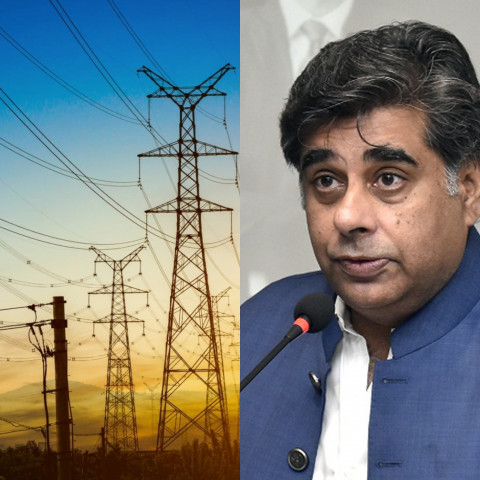
Former caretaker commerce minister Gohar Ejaz recently outlined comprehensive plans to reform Pakistan's power sector, emphasizing the need for transparency, accountability, and efficiency to benefit all stakeholders.
The statements came after Gohar disclosed data on payments to Independent Power Producers (IPPs), revealing significant financial burdens on consumers.
Ejaz shared on Sunday that over the past year, IPPs received payments amounting to Rs1.95 trillion. He criticized corrupt contracts and mismanagement that resulted in electricity being sold at Rs60 per unit, calling for public action against these deals.
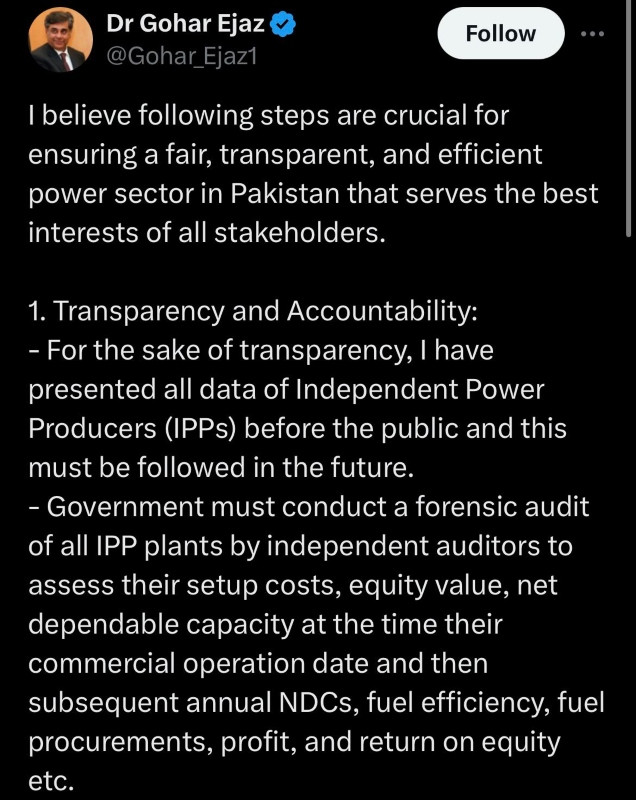
Formally writing on Twitter, Gohar called for the government to conduct forensic audits of all IPP plants by independent auditors, assessing setup costs, equity value, net dependable capacity at the time of commercial operation, subsequent annual NDCs, fuel efficiency, fuel procurements, profits, and return on equity.
Read: Power plants rake in Rs10b monthly with zero power output: NEPRA data reveals shocking truth
Proposing energy market reforms, the former minister suggested the establishment of a power exchange to eliminate the government as the sole buyer, fostering a multi-seller and multi-buyer market. He urged amendments to the Power Purchase Agreement (PPA) to ensure payments are made only for power purchased from IPPs and GENCOs, shifting from a 'Take OR Pay' to a 'Take AND Pay' basis. Additionally, he called for the privatization of government-owned power plants (GENCOs) and distribution companies (DISCOs)
Stressing the need for stakeholder inclusion, Gohar advocated for including representatives from all large consumer groups—domestic, commercial, and industrial—on the NEPRA Authority. This would ensure that vital decisions for the power sector are made with input from key stakeholders, promoting proficiency and transparency.
The former commerce minister urged the immediate implementation of the Competitive Trading Bilateral Contract Market (CTBCM) and the wheeling policy at international rates. He highlighted the importance of executing energy reforms promptly to benefit consumers and prevent the transfer of inefficiencies and losses onto them.
As part of the government's immediate tariff adjustment initiatives, Gohar suggested abolishing capacity payments from government-owned plants and then urging IPPs to follow suit. He recommended suspending the Rs 7.13 tariff increase for all consumers and setting a new industrial tariff at 9 cents per unit.
Gohar also announced the establishment of an Economic Policy and Business Development Think Tank. This think tank, comprising chairs and executives from sectors like Commerce, Finance, Energy, Agriculture, and Industry, aims to reform economic policies and drive business development in Pakistan. The president of the think tank will be announced soon, tasked with propelling Pakistan into the top 10 economies of the world.
Concluding his post, Gohar urged the public to join him in this effort, emphasizing that the issue extends beyond energy prices to the sustainability of Pakistan.
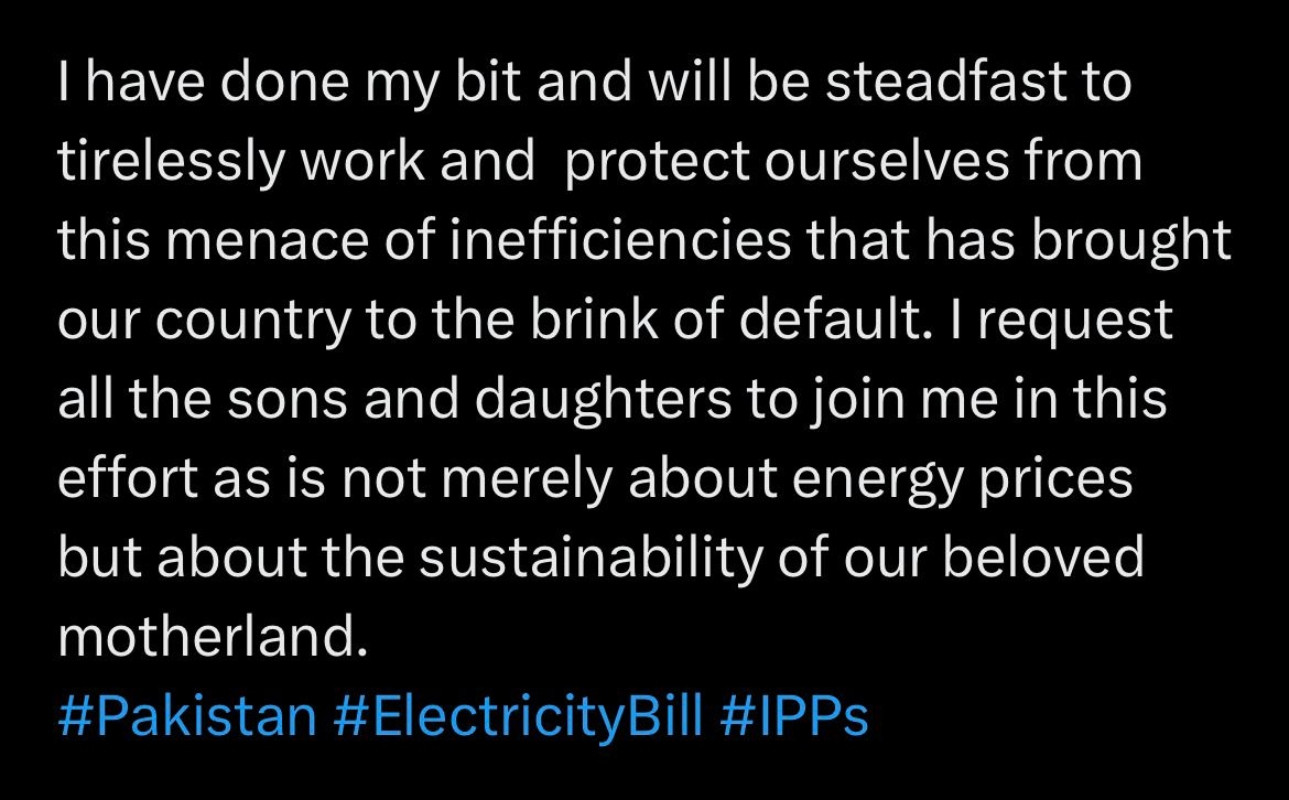











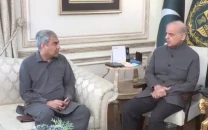
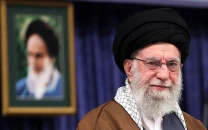






COMMENTS
Comments are moderated and generally will be posted if they are on-topic and not abusive.
For more information, please see our Comments FAQ